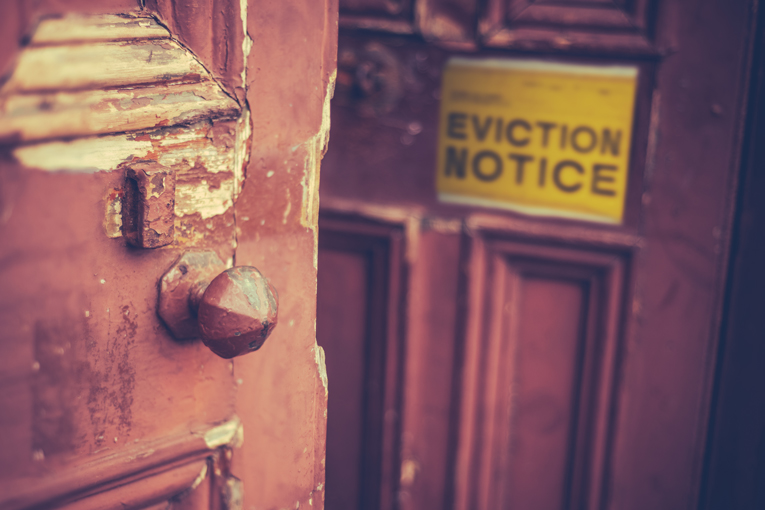How to get rid of squatters legally?

The discovery of unauthorized occupants in your property can be a distressing experience for any property owner. Whether you’re dealing with squatters in house after holiday or long-term trespassers, understanding your legal position is crucial. This comprehensive guide explores the legal framework surrounding squatting in the UK and outlines the steps for lawful removal. As navigating property rights and eviction processes involves intricate legal considerations, consulting with a qualified solicitor at the outset can help safeguard your interests and ensure full compliance with the latest regulations.

Key Takeaway: What are squatters?
Discover the legal pathways to protect your property rights and effectively remove unauthorized occupants while avoiding costly mistakes and legal pitfalls
Understanding squatters’ rights UK: Legal framework
Under UK law, understanding squatters’ rights is critical, as the legal system balances property owners’ rights with specific protections granted to occupants, creating a framework that every landlord and property owner must thoroughly understand:
- Squatting in residential buildings constitutes a criminal offense under Section 144 of the Legal Aid, Sentencing and Punishment of Offenders Act 2012, carrying penalties of up to six months’ imprisonment, a £5,000 fine, or both.
- Through adverse possession, long-term occupants can legally claim squatters’ rights UK by proving continuous occupation for 10 years in registered properties, extending to 12 years for unregistered properties.
- Commercial property squatting remains within civil law jurisdiction, requiring owners to navigate different legal procedures than those applicable to residential properties.
- Squatters’ rights council property regulations grant local authorities enhanced powers to swiftly remove unauthorized occupants from social housing, protecting vulnerable residents on waiting lists.
Types of property occupation and squatters’ law
The application of squatters’ law varies significantly based on how occupants entered and remained in the property, creating distinct legal challenges that demand different approaches for resolution:
- Former tenants who refuse to vacate after their tenancy ends represent the most common challenge, requiring landlords to follow strict eviction protocols under current squatters’ law.
- Break-in squatters, who force entry into vacant properties, face immediate criminal prosecution in residential cases, while similar actions in commercial properties fall under civil jurisdiction.
- Property guardians who exceed their licensed occupation period occupy a grey area in squatters’ rights UK legislation, requiring specific legal procedures for removal.
- Holiday home returnees discovering squatters in house after holiday must act swiftly through legal channels, as these cases often involve sophisticated squatting networks.
- Protest occupiers, who enter properties for political or social statements, require specialized legal approaches, particularly when dealing with group occupations.
Taking action: A step-by-step guide
When confronted with squatters, timing and following proper legal procedures are crucial. Property owners who act strategically within the first 28 days have access to accelerated removal procedures through Interim Possession Orders (IPOs):
- Initial verification of squatter status must precede any action. Assess whether you’re dealing with squatters in house after holiday, former tenants, or break-in occupants, as this determines your legal route.
- Police intervention should be your first call for residential properties under squatters’ law, as they have powers to remove criminal trespassers, particularly if there’s evidence of forced entry.
- Interim Possession Orders offer the fastest legal remedy under squatter’s rights UK legislation, requiring occupants to leave within 24 hours and preventing their return for 12 months.
- Standard possession proceedings become necessary when dealing with former tenants or if more than 28 days have passed, though these typically take longer to process through courts.
- Evidence gathering must be comprehensive – document property damage, utility usage, and all communications, while ensuring compliance with squatter’s rights council property procedures if social housing is involved.
Prevention strategies
While understanding squatters’ rights UK is essential, implementing robust prevention measures can save property owners thousands in legal fees and months of stress. A strategic approach to security is your first line of defence against unauthorized occupation:
- Regular property inspections, documented meticulously, strengthen your position under squatters’ law if unauthorized occupants claim long-term residence rights.
- Vacant property insurance, specifically covering squatter-related incidents, provides financial protection and often includes security assessment guidance.
- Community engagement strategies, including relationships with neighbours and local police, create an informal surveillance network that significantly reduces squatting risks.
Do I need a lawyer?
Navigating squatters’ rights UK without professional legal guidance often leads to costly mistakes and delayed resolutions. Understanding when and why to engage legal expertise can be the difference between swift removal and prolonged occupation:
- Complex cases involving squatters in house after holiday situations require immediate legal intervention to conduct criminal and civil proceedings effectively.
- Property solicitors specializing in squatters’ law can fast-track your case through court systems, often accessing priority hearing dates and expedited procedures.
- Legal representation becomes crucial when dealing with counterclaims, as squatters may assert adverse possession rights or challenge the legality of your ownership.
- Solicitors familiar with squatters’ rights council property cases can liaise effectively with local authorities, potentially accessing additional removal powers.
- Professional legal guidance ensures compliance with evolving property laws, protecting you from potential countersuits and criminal charges.
Frequently Asked Questions about squatters’ rights and removal
- Why do squatters have rights in the UK? These rights evolved from centuries-old adverse possession laws, designed to ensure land remains productive and to resolve ownership disputes when properties are abandoned.
- Can police remove squatters UK immediately? Police can remove squatters immediately from residential properties if there’s evidence of criminal activity, but need court orders for commercial properties.
- Can squatters claim rights to my property if they pay council tax? Payment of council tax or utilities does not grant any legal rights to squatters, though it may be used as evidence of occupation duration.
- What happens if squatters damage my property during occupation? You can claim damages through civil court proceedings, and criminal damage should be reported to the police immediately. Document all damage with dated photographs.
Don’t let squatters jeopardize your property rights. While they may understand squatters’ law better than most property owners, your swift action coupled with expert legal support can turn the tables quickly. Remember: every hour counts, and prevention strategies cost far less than prolonged legal battles.
Need expert help removing squatters from your property?
Qredible connects you with specialist property lawyers who can take immediate action, navigate complex squatters’ rights UK, and protect your interests throughout the eviction process.
KEY TAKEAWAYS
-
- Under squatters’ law, unauthorized residential occupation is a criminal offense punishable by up to 6 months imprisonment and £5,000 fines.
- Different legal approaches apply to various scenarios, from squatters in house after holiday to long-term adverse possession claims.
- Prevention strategies, including property guardianship and smart security systems, are more cost-effective than legal proceedings.
- Squatters’ rights UK require specific procedures for removal. Any self-help eviction attempts are illegal and counterproductive.
- Professional legal guidance early in the process significantly increases chances of swift resolution and reduces overall costs.
Do you need a solicitor?
Find a solicitor on Qredible in just a few easy steps
Cardiff Solicitor
Harrow Solicitor
London Solicitor
Wigan Solicitor
Belfast Solicitor
Sheffield Solicitor
















